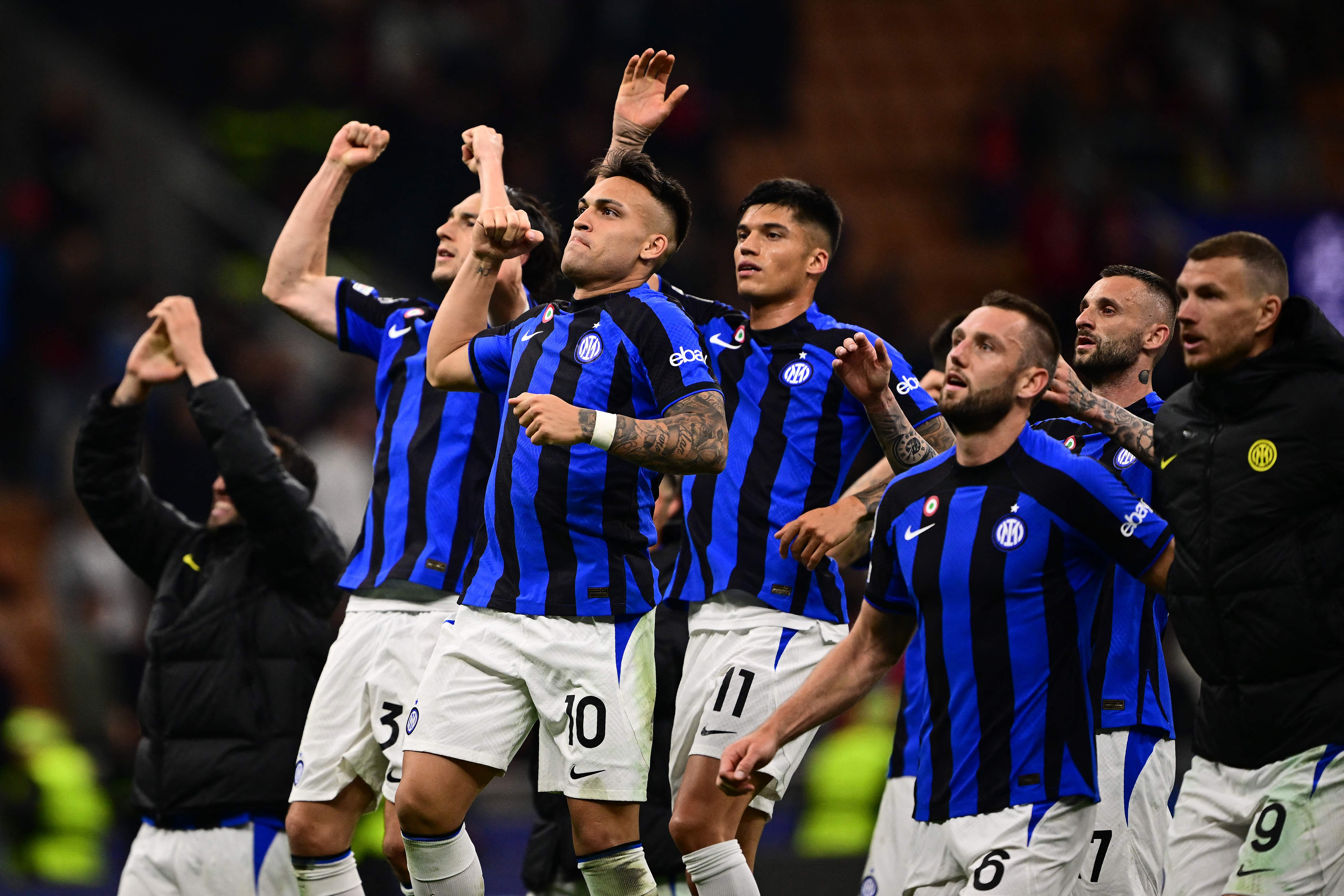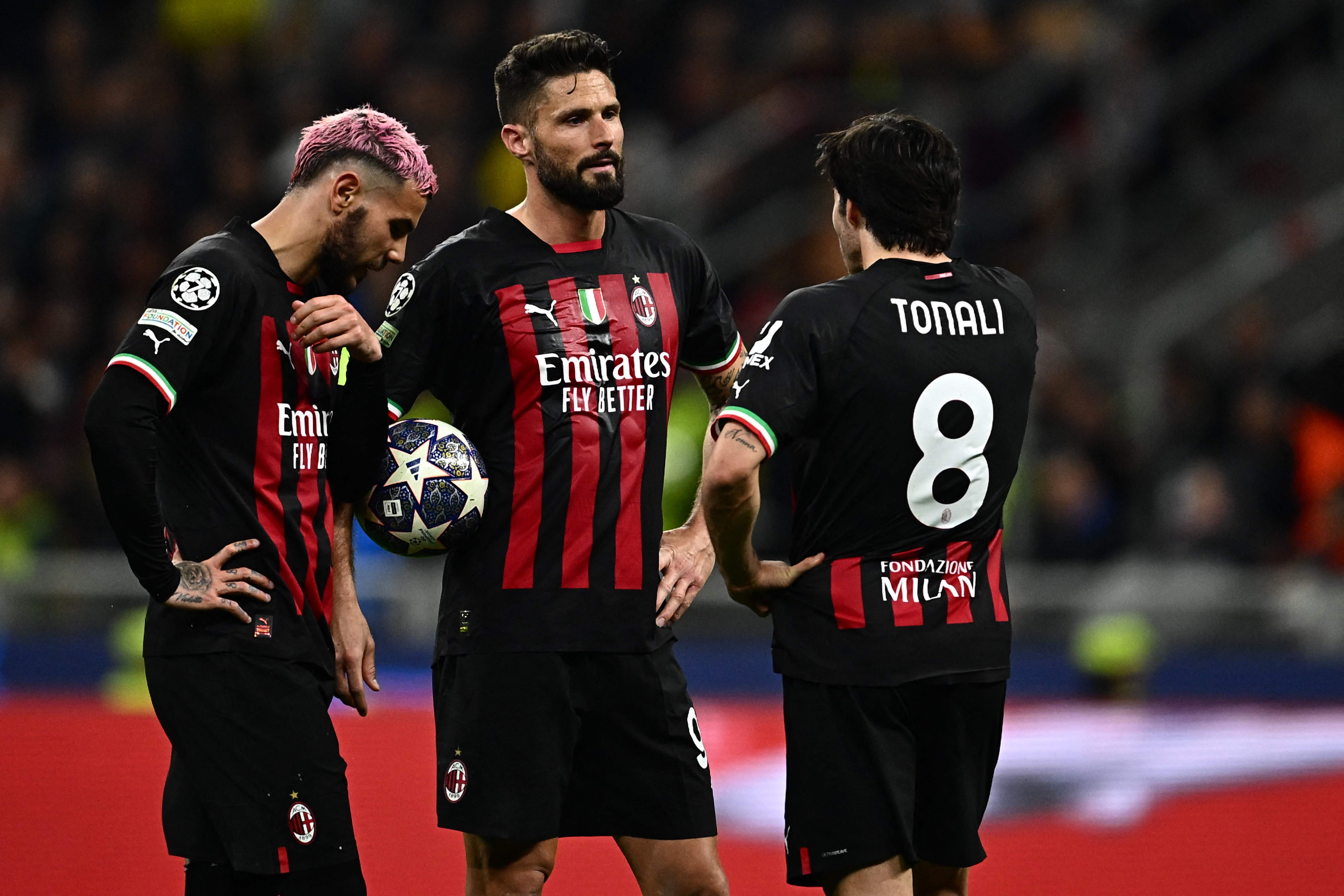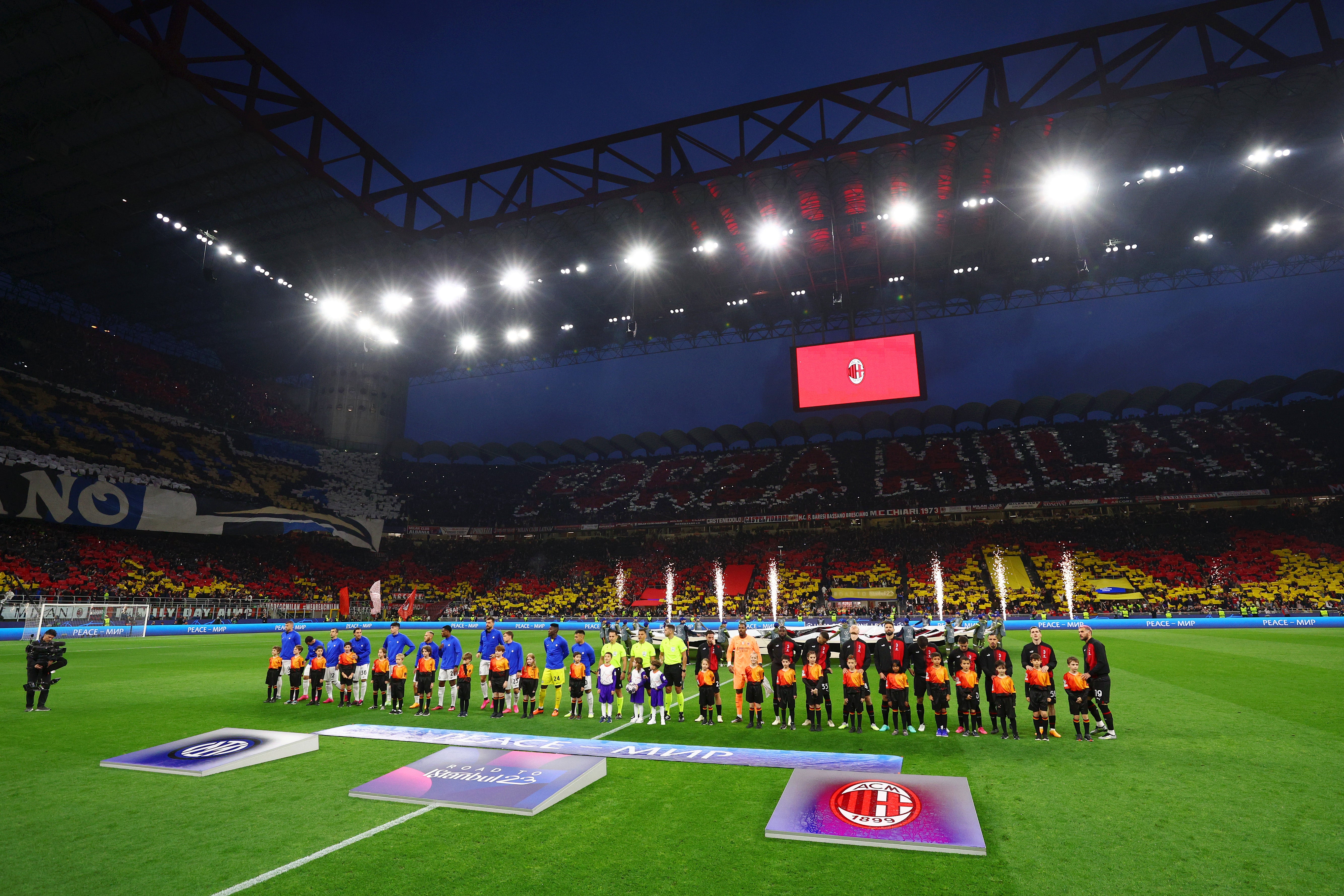
After a night when Internazionale could excitedly imagine a stage that recently seemed unattainable, it is worth considering an alternative future.
This could easily have been a Super League game, since both Milan clubs signed up to the ill-fated project. If it was, would it have been anything like the stirring sensory overload that this was? That is something that is simply impossible to imagine.
The fans would have of course tried to enliven a relatively sterile round-robin match with the same choreography, but it just couldn’t have had the same emotion, the same force.
That is because this precious occasion was so much more than a Milan derby, even as that was what made it unique. It was a consequence of seven decades of history and mystique, much of that when these two clubs have been regular European champions, all of that feeling more acute since neither looked like rising to that level for such a long time.
There was almost a contradiction, since it was their very scarcity that made this such a spectacle. It is also cause for consideration.
The story of the last 15 years of European football, but one that really stretches back further, is that of Western capitalism and wider political interests looking at occasions like this and deciding they wanted it for their own ends. That story has led to the profound distortion of the game, in a manner that is without precedent in that long history.
The two Milan clubs have been victims of this and examples of it. They have not been able to keep financial pace with grander projects elsewhere, which directly resulted in their old industrialist moguls selling up. This has then seen them picked up and picked off by newer models. There remain so many questions about Inter Milan’s ownership. AC Milan’s have meanwhile been extreme modern examples of that very Western capitalism.
All of this was supposed to put them outside the game’s new and increasingly calcified elite.
And yet the two clubs and their wider communities came together to offer an occasion that so many of these interests are desperate to recreate and capitalise from, but that actually can’t be bought.

It is something that will always be separate from such interests, because it can only come organically, and from a shared history and identity.
On a more basic level, it’s one reason the Super League plan is flawed. The idea was to recreate these fixtures every week but they can only rise to such levels as a season builds to something, with the inherent peril of elimination infusing it all with something greater.
That also raises another point. For all that more and more money is flowing into the game, which the Champions League has done the primary job of generating, the sport doesn’t need these external interests. It is capable of producing this all on its own, as the self-contained cultural pursuit that it should be. Even more pointedly, would football be any lesser if it was 10 percent financially smaller? The players may not be paid the same level but that alone would mean financial gaps are shorter, and allow more clubs to compete.
A Milan derby in a Champions League semi-final would be just as precious but for the opposite reason, which should bring more optimism. It wouldn’t be because the same handful of clubs always reach the semi-final. It would be because, like most of European history, a far wider field of clubs would be able to get this far. That is far better for football.
If all of this seems complex discussion from such a compelling occasion, it is only because that occasion itself had a purity that is increasingly rare. It was to be savoured.

It was also a throwback in another sense.
In a modern game of tactical models where system trumps all - of which Milan are another clear example - Inter are like a side from 20 years ago. They are a canny group of individuals, fashioned to whatever force is required for any specific game. That was the winning of this first leg.
Inter’s individuals rose to it in an approach cut for the game.
It should be stressed this is one reason they have become a cup team and Simone Inzaghi has become known as a cup manager, where they have not really been able to recreate their 2020-21 title victory. This is why clubs like Milan go for that system model, after all. It is more productive over the longer term, representing something of an “algorithmisation” of football. The model was validated last year as the Rossoneri succeeded their bitter rivals to claim the Scudetto under Stefano Piolo.
It was just that Inter’s approach played into what a stirring occasion this was. So many of their team - from Lauturo Martinez to Edin Dzeko to the brilliant Federico Dimarco - played to the occasion in the best way possible.
If they do complete the job, and get to the final, there is probably more of a danger for Real Madrid and Manchester City than most anticipate. That is for more than just being able to rise to such an occasion, which Inzaghi has been so good at firing.
It is also that they have a serious team, that of course came together under Antonio Conte in that title win two seasons ago.
There is probably more higher quality than Milan, from Milan Skriniar and Alessandro Bastoni at the back through Dimarco and Nicola Barella in midfield, with Dzeko and Romelu Lukaku up front. The Belgian, on loan from Chelsea, was actually back to looking a level above when he came on.

Many will fairly point to the presence of such Premier League veterans as one key reason why they are a level below the elite, especially when the rest of the team is made up of more makeshift options like former Manchester United defender Matteo Darmian.
But the point is the inherent quality that can come together on any given occasion, and particularly an occasion like a Champions League final.
That’s if they get there, of course. It remains possible that Milan’s process will produce over the longer-term course of two games. They probably should have at least had a goal in a dominant second half. They just lacked that greater quality up front. They lacked the brilliance of Rafael Leao.
His return could yet bring a roaring comeback. We could well have an occasion that matches this.
That is something all too easy to imagine, and gloriously exciting.







